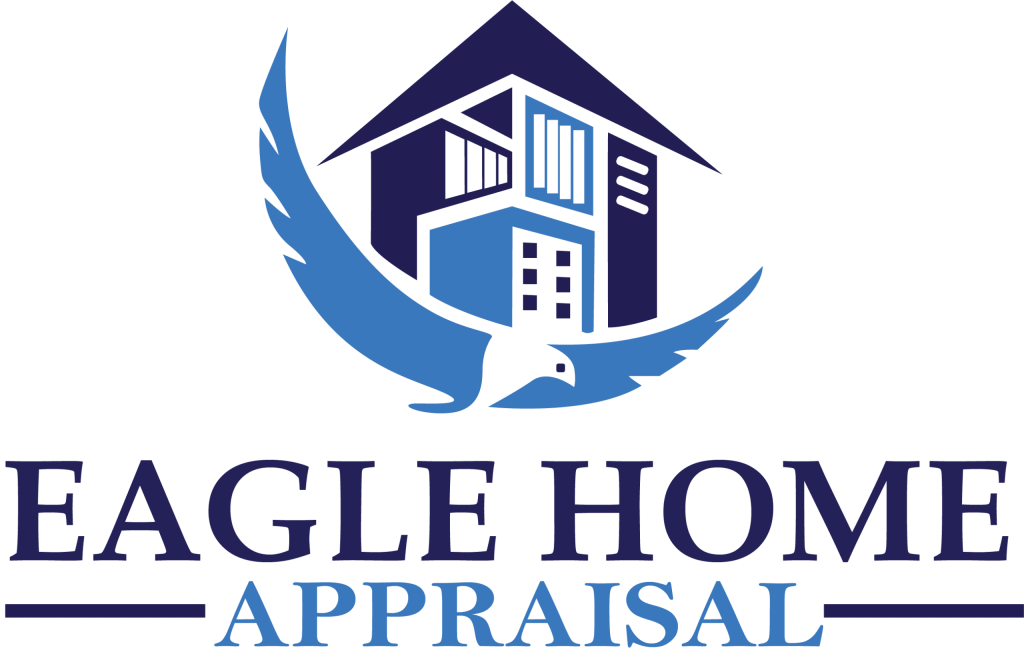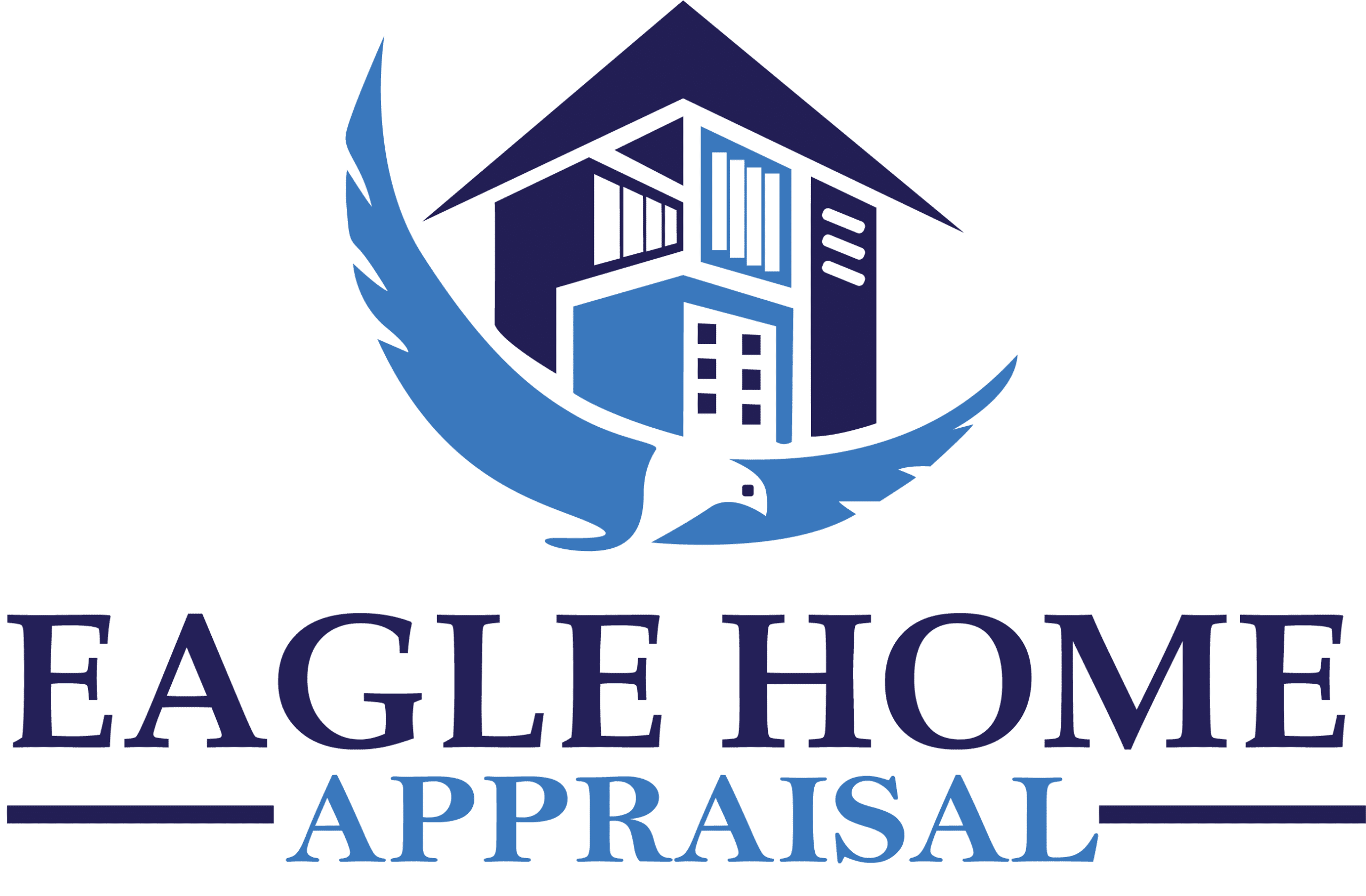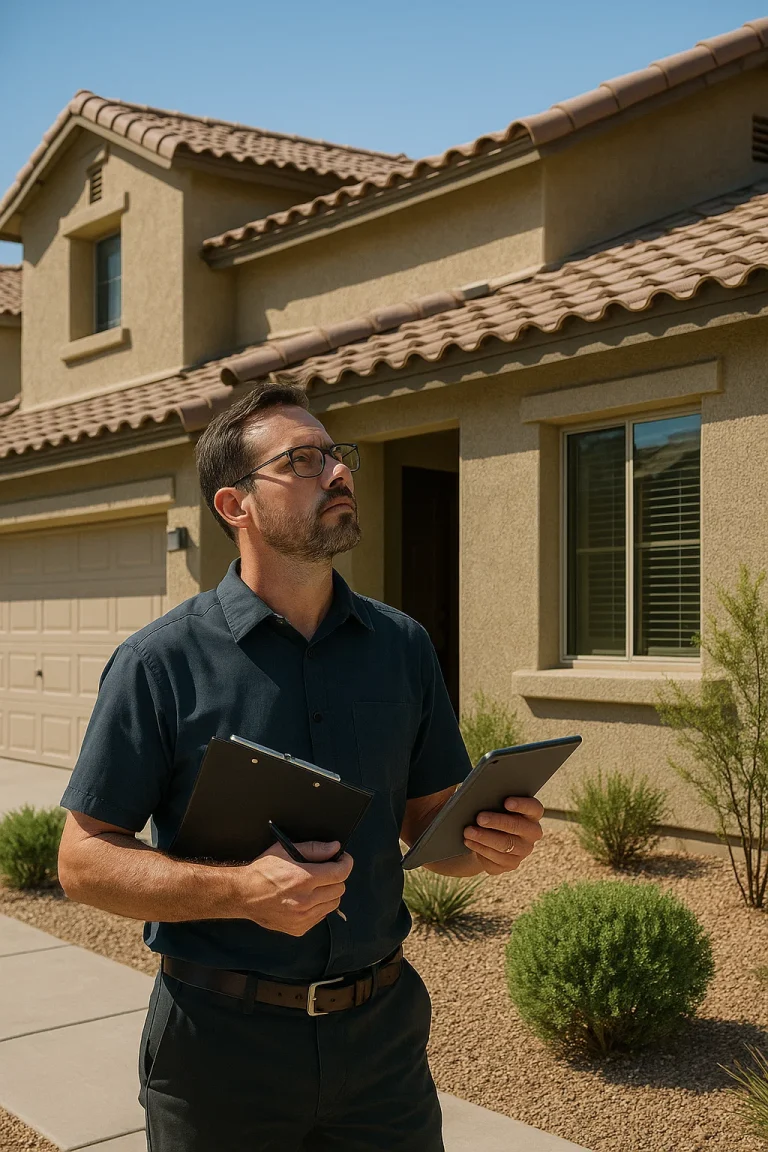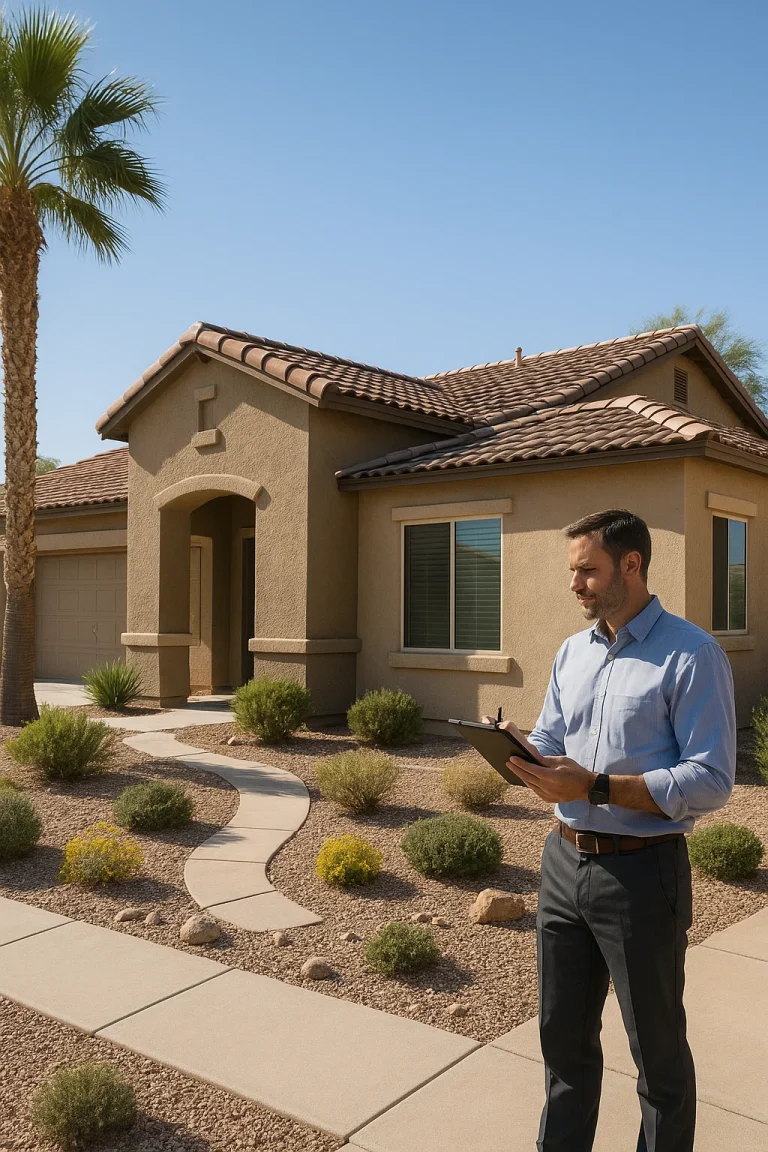When Are Drive-By Appraisals Used Instead Of Full Appraisals In Arizona?

In today’s fast-paced Arizona real estate market, accurate property valuation is more critical than ever. Whether buying, selling, refinancing, or settling an estate, the appraisal establishes an objective view of a property’s market value. Yet, not all appraisals take the same form — and working with a top real estate appraiser in AZ ensures you get the most reliable results for your needs.
A full appraisal — with its interior and exterior inspection — is the gold standard for accuracy and comprehensiveness. But in some cases, a drive-by appraisal (also called an “exterior-only” appraisal) can be a smart, cost-effective alternative. These are shorter inspections where the appraiser evaluates only the outside of the property, relying on public records, MLS data, and prior information for the rest.
In Arizona, where neighborhoods range from historic bungalows in Phoenix to modern subdivisions in Gilbert and remote desert properties, the choice between a drive‑by and a full appraisal depends on a variety of factors: lender requirements, property condition, purpose of the valuation, and sometimes even public safety considerations.
For lenders, appraisals are indispensable risk‑management tools. They help ensure that the loan amount they are offering aligns with the property’s fair market value. For homeowners, appraisals help with setting a sale price, obtaining equity loans, resolving disputes, and even challenging tax assessments.
Yet, in recent years — accelerated by events like the COVID-19 pandemic — lenders have shown a growing willingness to use drive‑by appraisals in certain low‑risk cases. These appraisals offer faster turnaround times and lower costs because the appraiser spends less time gathering on-site data. Instead, they supplement the limited physical inspection with research into comparable sales, market trends, and online resources
By the end, whether you’re a homeowner in Chandler looking for a quick valuation for a home equity loan, or a real estate investor buying a distressed property in Tucson, you’ll have a clear understanding of which appraisal type suits your needs.
What Is a Drive‑By Appraisal and How Does It Work?
A drive-by appraisal—also commonly called an exterior-only inspection—is a property valuation method where expert real estate appraisers evaluate the home’s value primarily through a curbside inspection and research, without entering the interior.
The appraiser visits the property in person but limits their direct observation to features visible from public streets, alleys, or easements. They’ll typically take photographs of the front, sides, and sometimes the backyard (if visible from a public vantage point), and make notes on the home’s exterior condition, architectural style, apparent size, landscaping, and any visible issues like damaged roofing, peeling paint, or structural concerns.From there, the appraiser supplements these visual cues with data from a variety of sources:
- Multiple Listing Service (MLS) records (for prior sales, photos, and interior descriptions)
- County assessor and tax records (for square footage, year built, lot size, and features recorded in public property files)
- Comparable sales of similar nearby homes that have recently sold in the open market.
Instead of verifying every element in‑person, they rely heavily on recorded information to fill in gaps about the property’s interior finishes, floor plan, and renovations. If available, prior professional listing photos can provide clues about condition and layout.
Drive‑by appraisals gained traction as a legitimate option for certain loan products—especially lower‑risk scenarios such as refinancing with significant equity—because they’re faster and less expensive than traditional appraisals. They rose sharply in use during the COVID‑19 pandemic, when interior access was difficult or discouraged.
However, by definition, they carry limitations. Without an interior inspection, the appraiser cannot verify whether upgrades have been added, whether there’s deferred maintenance, or if interior damage exists. As a result, the valuation is usually considered a more general market estimate rather than a precise figure backed by full inspection details.
For many Arizona homeowners, this type of appraisal can be a smart choice when timelines are tight and the property’s condition and data history are well documented. It’s important to remember, though, that not every lender or transaction type will accept a drive‑by appraisal as sufficient.
Full Appraisals: A More Comprehensive Approach
While drive‑by appraisals focus solely on the property’s exterior, a full appraisal offers a comprehensive assessment that includes both an exterior and interior inspection. This is still the most widely requested and accepted form of valuation for real estate transactions in Arizona—particularly for purchases, high‑value loans, and situations with uncertain property conditions.
During a full appraisal, the appraiser schedules a set appointment with the homeowner or real estate agent to walk through the property. They:
- Measure and confirm square footage using precise tools.
- Document the interior layout, bedroom and bathroom counts, and overall functionality.
- Note upgrades, special features, finishes, flooring, cabinetry, and appliances.
- Evaluate the structural integrity, HVAC systems, windows, plumbing, and electrical systems.
- Identify any deferred maintenance issues such as leaks, cracks, or outdated systems.
They then collect exterior observations similar to those in a drive‑by appraisal—roof condition, landscaping quality, exterior materials, garage or outbuilding structures—and combine these with their interior findings to produce a much more detailed final report.
This level of inspection allows the appraiser to adjust comparable sales data with greater accuracy. For example, if two homes have the same square footage, but one has a remodeled chef’s kitchen while the other is in original 1985 condition, a full appraisal can account for that variation. A drive‑by cannot, unless the improvements were documented in MLS or permitted remodel records.
Given the thorough nature of a full appraisal, the process takes more time—both in the inspection phase and the reporting stage. Costs are also higher, averaging $600–$2,000 in Arizona depending on property size, complexity, and location.
Full appraisals are required in a wide range of transactions, including FHA and VA loans, most purchase money mortgages, and cash‑out refinances above certain thresholds. They are also essential for unique or luxury properties, rural estates, or older homes where condition can vary greatly from the norm.
While they require more coordination and time, full appraisals remain the gold standard for accuracy and lender security. They provide a lender, buyer, or seller with more than just a ballpark value—they offer a clear, evidence‑based snapshot of the property’s true market position.
Key Differences: Drive‑By vs. Full Appraisal
While both drive‑by and full appraisals aim to determine a property’s fair market value, the scope of inspection, accuracy, and application differ significantly. Understanding these differences helps lenders, buyers, and homeowners choose the method that best serves their needs.
Inspection Scope
- Full Appraisal: Includes a walkthrough of every accessible interior space, along with an exterior inspection. The appraiser documents condition, upgrades, repairs, and functional layout.
- Drive‑By Appraisal: Limited to external observation from public vantage points; interior details come from public records, MLS photos, or prior appraisals.
Information Sources
- Full: Relies on direct observation as the primary data source, supplemented by records and comparable sales.
- Drive‑By: Relies primarily on secondary data sources and visible exterior clues.
Accuracy
Full appraisals typically yield a more accurate valuation, especially if the property has had recent upgrades, sustained interior damage, or has features not visible from the street. Drive‑by appraisals work best for standard homes in areas with consistent sales and well‑documented listings.
Cost and Turnaround
- Full appraisals in Arizona cost roughly $600–$2,000 with a turnaround of 5–7 business days (sometimes longer for complex properties).
- Drive‑by appraisals cost $100–$150 and are usually completed in 1–3 days.
Risk and Liability
For lenders, a full appraisal reduces uncertainty and aligns with underwriting requirements for higher‑risk loans. Drive‑bys carry more valuation risk, and appraisers typically have much lower liability coverage for these assignments.
Typical Uses
- Full Appraisal: Purchase transactions, high‑LTV refinances, unique or luxury homes, rural properties, estate settlements requiring detailed condition reports.
- Drive‑By: Low‑LTV refinances, home equity loans, foreclosure cases with no interior access, certain government or institutional valuations.
In short, a full appraisal offers depth, accuracy, and security, while a drive‑by prioritizes speed, cost savings, and convenience—at the expense of detail. The decision often comes down to balancing risk with efficiency.
Regulatory and Industry Standards in Arizona
In Arizona, the decision to use a drive‑by appraisal instead of a full appraisal is shaped by both state-level statutes and federal lending regulations, blended with each lender’s internal policies. While the state does not explicitly mandate when a full appraisal must be used, appraisers are bound by the Uniform Standards of Professional Appraisal Practice (USPAP), which outline ethical standards, required disclosures, and reporting formats for all types of assignments.
From a federal perspective, mortgage lending is largely influenced by underwriting requirements from Fannie Mae, Freddie Mac, the Federal Housing Administration (FHA), and the Veterans Administration (VA). Each has its own appraisal policies:
- Fannie Mae allows exterior-only inspections for certain refinance transactions with low risk profiles, typically where recent, reliable interior data already exists.
- FHA and VA loans almost always require full interior appraisals, given their guarantees and borrower protections.
At the state level, agencies like the Arizona Department of Transportation (ADOT) may request drive‑by appraisals for infrastructure projects or right‑of‑way acquisitions. In these cases, valuation is often focused on the land or external market conditions rather than interior improvements.
Lender decisions are also driven by risk-based assessment. For example:
- A bank may approve a drive‑by if the borrower’s credit is strong, loan‑to‑value ratio is low, and sales data is abundant.
- For high-value or high‑LTV loans, underwriting guidelines will almost always dictate a full appraisal.
In all cases, the appraiser must clearly disclose in the report that the inspection was exterior-only and explain any assumptions made about the property’s interior. USPAP requires transparency about the limitations of the scope of work and how those limitations could affect value reliability.
Overall, in Arizona, the “rules” are not a one‑size‑fits‑all checklist. Rather, whether a drive‑by appraisal is used depends on lender requirements, transaction type, and compliance with federal and USPAP standards—with the appraiser’s professional judgment playing a critical role.
Advantages of Drive‑By Appraisals
For qualifying situations, drive‑by appraisals offer multiple advantages over full interior-and-exterior inspections:
- Speed – A major selling point is turnaround time. Without arranging interior access, the appraiser can often deliver a report in as little as 24–72 hours, keeping time‑sensitive loan approvals or closings on track.
- Lower Cost – Drive‑by appraisals in Arizona typically range from $100–$150, a fraction of the cost of a full appraisal. For smaller loans or borrowers watching expenses, this can be a meaningful savings.
- Convenience – No need for homeowners to declutter, schedule, or accommodate an appraiser’s walkthrough. This can be a relief for occupied rentals, properties mid‑renovation, or homes with scheduling conflicts.
- Reduced In‑Person Contact – Particularly relevant during public health events or in cases where occupants have privacy or safety concerns.
- Ideal for Standardized Properties – In master‑planned communities or neighborhoods with plentiful comparable sales data, the lack of an interior inspection is less likely to impact valuation accuracy.
- Useful for Restricted Access – If tenants, safety hazards, or foreclosure status make entering the home impossible, a drive‑by still allows for a professionally‑prepared value estimate.
These advantages are why lenders integrate drive‑by appraisals into their suite of valuation tools for low‑risk assets. While these benefits are clear, they must always be weighed against the potential downsides—particularly in cases where interior condition may substantially affect value.
Limitations and Risks of Drive‑By Appraisals
Because a drive‑by appraisal omits a physical interior inspection, it carries inherent accuracy limitations and lender risk. The most significant drawbacks include:
- Missing Interior Condition Data – Renovations, defects, or damage inside the home (water leaks, mold, outdated systems) cannot be confirmed, forcing the appraiser to make assumptions.
- Heavy Reliance on Public and MLS Records – If those records are outdated or incomplete, the valuation may reflect incorrect property details.
- Limited Use for Unique or High‑Value Homes – Distinct architecture, luxury finishes, or custom layouts often require firsthand observation to be valued correctly.
- Higher Risk of Over‑ or Under‑Valuation – Without interior verification, the likelihood of value deviation increases, potentially affecting loan security.
- Minimal Liability Coverage – Many appraisers carry lower errors and omissions coverage for drive‑bys—meaning less recourse for lenders if the value proves inaccurate.
- Less Acceptance by Certain Loan Programs – FHA, VA, and most purchase loans mandate full appraisals to prevent these risks.
While these risks are manageable in low‑risk transactions with good data, they do make drive‑by appraisals less suited for complex, high‑stakes, or high‑LTV loans. Borrowers and lenders must carefully evaluate whether time and cost savings outweigh the potential for less precision.
How Arizona Lenders Decide Which Appraisal to Order
The choice between a drive‑by and full appraisal in Arizona is not arbitrary—it’s the product of a lender’s risk assessment model shaped by regulatory guidelines and internal policy. Key decision factors include:
- Loan‑to‑Value Ratio (LTV): Low LTV loans (e.g., 50% or less) are safer for lenders, making a drive‑by more acceptable.
- Purpose of the Loan: HELOCs, rate‑and‑term refinances, and small portfolio loans may qualify for exterior‑only inspections; purchase loans generally require full appraisals.
- Borrower Risk Profile: Strong credit history, low debt load, and high income stability increase lender comfort.
- Property Type and Complexity: Standard tract homes with ample comps are better drive‑by candidates than unique, luxury, or rural properties.
- Market Data Availability: If recent MLS listings or appraisals exist for the property—or similar homes nearby—drive‑bys become more feasible.
Ultimately, the lender must balance speed and cost against valuation reliability. Even when a drive‑by is permissible, some lenders may still prefer full appraisals to reduce liability.
The Process: What to Expect from a Drive‑By Appraisal
For Arizona property owners, the drive‑by process typically unfolds as follows:
- Order is Placed – The lender or client requests the appraisal from a certified appraiser, specifying “exterior-only” scope.
- Exterior Inspection – The appraiser visits the site, takes photographs from the street, notes visible condition, and surveys the neighborhood.
- Market Research – Data gathering from MLS, county assessor, tax records, and previous listings fills in property details.
- Comparable Sales Analysis – Recently sold similar properties are adjusted for size, location, and condition (estimated from records).
- Report Preparation – A formal report is compiled, stating the limited scope, assumptions, and final opinion of value.
- Delivery – The report is sent to the client, usually within 1–3 days.
No appointments or homeowner presence are typically needed. However, because the inspection is limited, the report will clearly note that interior condition was not observed and that assumptions were made accordingly.
When to Request (or Refuse) a Drive‑By Appraisal in Arizona
Good Candidates for a drive‑by appraisal include:
- Low‑balance refinances or equity loans.
- Transactions with ample and recent comparable sales data.
- Properties in easily accessible urban/suburban neighborhoods.
- Situations where interior access is unsafe or restricted.
Poor Candidates for a drive‑by include:
- High‑value or unique custom homes.
- Properties with recent renovations or damage unknown to the public record.
- High‑LTV purchase loans or FHA/VA transactions.
- Homes in rural or atypical areas with few good comps.
The key consideration is whether the cost and time savings justify the reduced certainty of value. Homeowners and lenders should consider both the property type and transaction risk profile before deciding.
Conclusion:
Arizona’s property market is diverse—covering dense urban neighborhoods, sprawling suburbs, and rural land parcels. In this environment, drive‑by appraisals can be a valuable tool when used in the right context: low‑risk transactions with strong supporting data, or situations where interior access is impractical.
However, for high‑value, unique, or condition‑sensitive properties, a full appraisal remains the gold standard for accuracy and lender security. Choosing the right type ultimately comes down to balancing speed, cost, compliance requirements, and risk tolerance.
When in doubt, consult an experienced, local appraisal firm—like Eagle Home Appraisal Gilbert—to ensure you’re making an informed decision. They can assess your property and transaction specifics, explain which appraisal type is most appropriate, and deliver a reliable valuation tailored to your needs.
Next Up: Some real estate situations require different types of appraisals depending on the goal of the property evaluation. In our next post, we’ll explore What is the difference between a pre-listing and refinance appraisal in Gilbert? and how understanding this distinction can help homeowners make informed decisions whether they’re preparing to sell or refinancing their mortgage.
Divorce Appraisals
At Eagle Home Appraisal Gilbert, we specialize in providing expert divorce appraiser services, offering expert witness testimony when necessary.
Estate & Trust Appraisals
At Eagle Home Appraisal Gilbert, we offer a comprehensive range of professional estate appraisal services to facilitate estate and trust planning.
IRS & Tax Appraisals
At Eagle Home Appraisal Gilbert, we specialize in providing professional IRS tax appraisal services to minimize capital gains on inherited property.
Real Estate Appraisal
Eagle Home Appraisal is a group of independent fee appraisers committed to delivering competent, credible, and reliable appraisal reports.
Eagle Home Appraisal Services Near Me
Comprehensive Property Appraisals
Expert Witness Testimony
Fair Market Value Assessments
Rapid Turnaround Times
Customized Solutions
Contact Eagle Home Appraisal Today
For more information about our services, get in touch with Eagle Home Appraisal. Our team is dedicated to providing the best customer service, ensuring all your appraisal needs are met with professionalism and expertise. Contact us today to learn more about how we can assist you.
Get A Free Consultation

copyright @2025 all rights reserved | Privacy-policy



